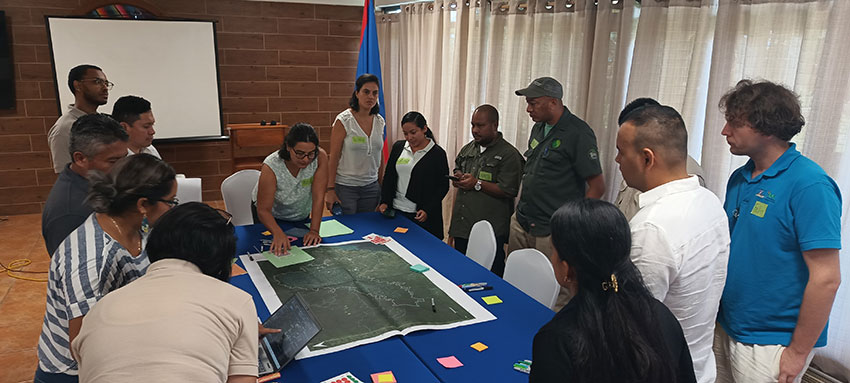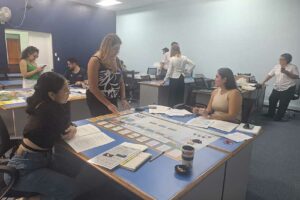CATIE promotes consultations on gender, restoration, and climate risks in the Caribbean of Honduras, Guatemala, and Belize for the REFORES project
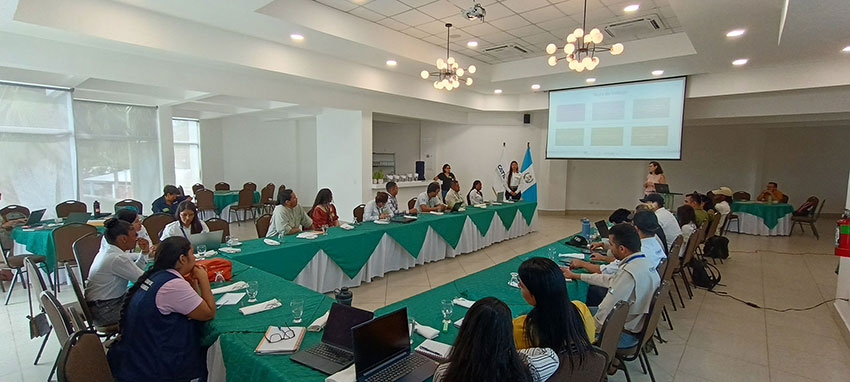
- Through the development of participatory mapping, key information was obtained for adaptation-oriented restoration within the framework of the Refores project implementation.
Within the framework of the Refores project (Forest Restoration for Climate Resilience in the Caribbean), which aims to increase the resilience of communities and ecosystems in the Gulf of Honduras, Central America, CATIE (Tropical Agricultural Research and Higher Education Center), in collaboration with the World Resources Institute (WRI), implemented participatory workshops with officials from the main public institutions and civil society organizations of Honduras, Guatemala, and Belize.
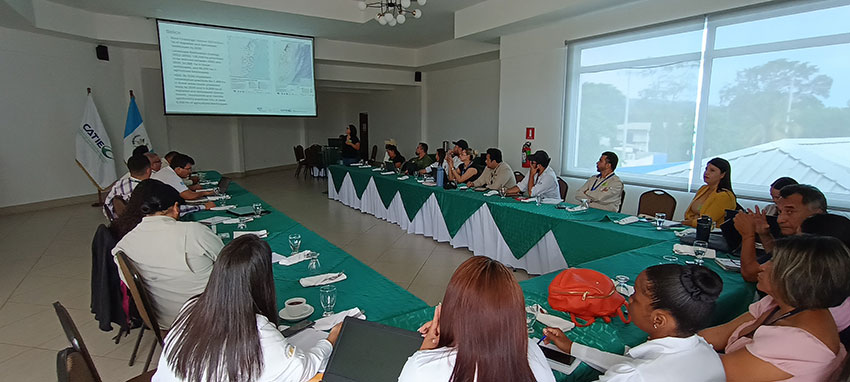
These institutions are related to gender issues, forest restoration, risk management, and early warning systems. The workshops were held between August 5 and 19 in San Pedro Sula (Honduras), Puerto Barrios (Guatemala), and San Ignacio (Belize). They served to socialize and adjust the main approaches and concepts of the project, collect data, and exchange knowledge on strategic issues for identifying priority intervention sites of the project and potential Nature-based Solutions (NbS) for disaster risk reduction.
A total of 129 people participated in the workshops, forming working groups for discussions on culturally relevant gender approaches, current restoration programs and projects, and the analysis of climatic and non-climatic threats in the territories of Sierra el Merendón (Honduras), Cerro San Gil and Rio Dulce (Guatemala), and the Mono River Basin (Belize).
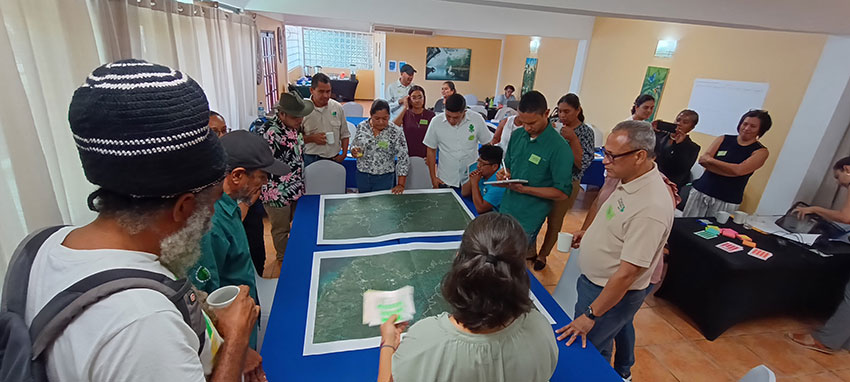
Estuardo Girón indicated that the objective was for institutions, municipalities, and key civil society organizations in the territories to provide strategic information for decision-making related to defining priority sites for adaptation-oriented restoration.
“The workshops create conditions to establish a regional network with key actors that promote adaptation-oriented restoration with a gender approach in response to climate change in this important industrial and tourist region.”
“The participatory mapping methodology we implemented in the working groups during the workshops allows us to obtain complementary information to define and classify priorities based on data and records of the impact of climatic events from the experiences of key institutional and civil society informants in the territories,” said Pablo Imbach, leader of the Climate Action Unit at CATIE.
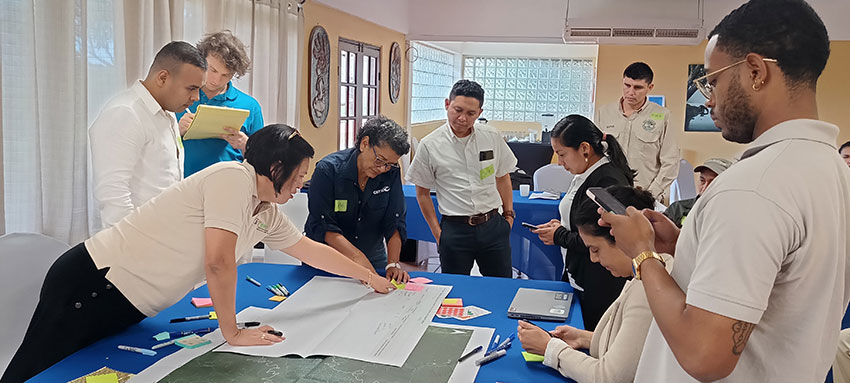
The restoration efforts identified by the Refores project are based on principles of gender and social equity. Therefore, tools were also presented for establishing a complaints and grievances mechanism, and key elements were discussed to develop methodologies that support the reduction of gaps in effective participation in decision-making based on gender and indigenous peoples.
Refores is executed with financial support from the Adaptation Fund (AF) through an agreement with the Central American Bank for Economic Integration (CABEI). The Climate Action Unit, together with the Forests and Biodiversity in Productive Landscapes Unit at CATIE and WRI, are the executors of the regional project, backed by focal points in the three countries: the Secretariat of Natural Resources and Environment (SERNA) in Honduras; the Ministry of Environment and Natural Resources (MARN) in Guatemala; and the Ministry of Economic Development (MED) in Belize.
